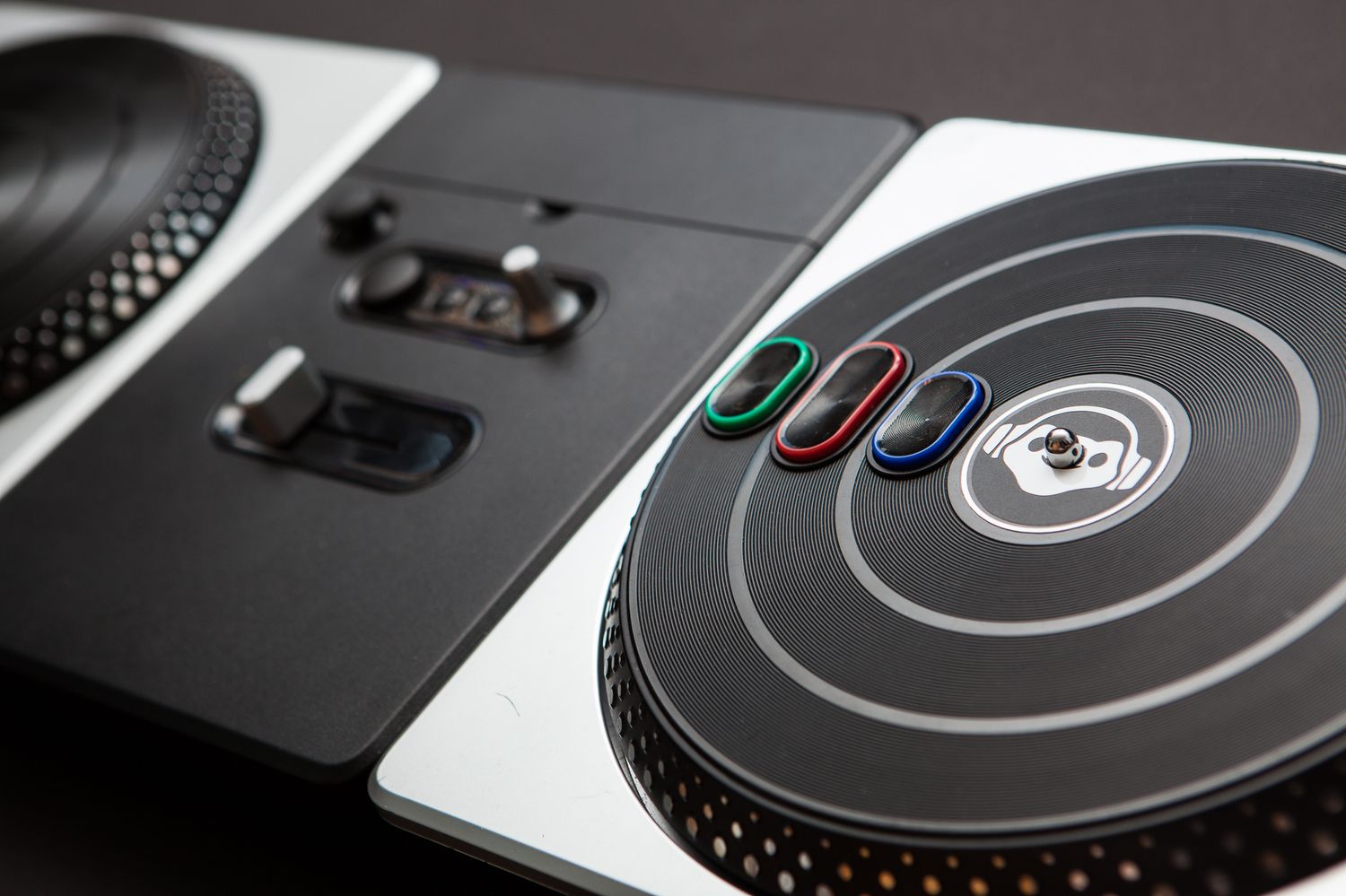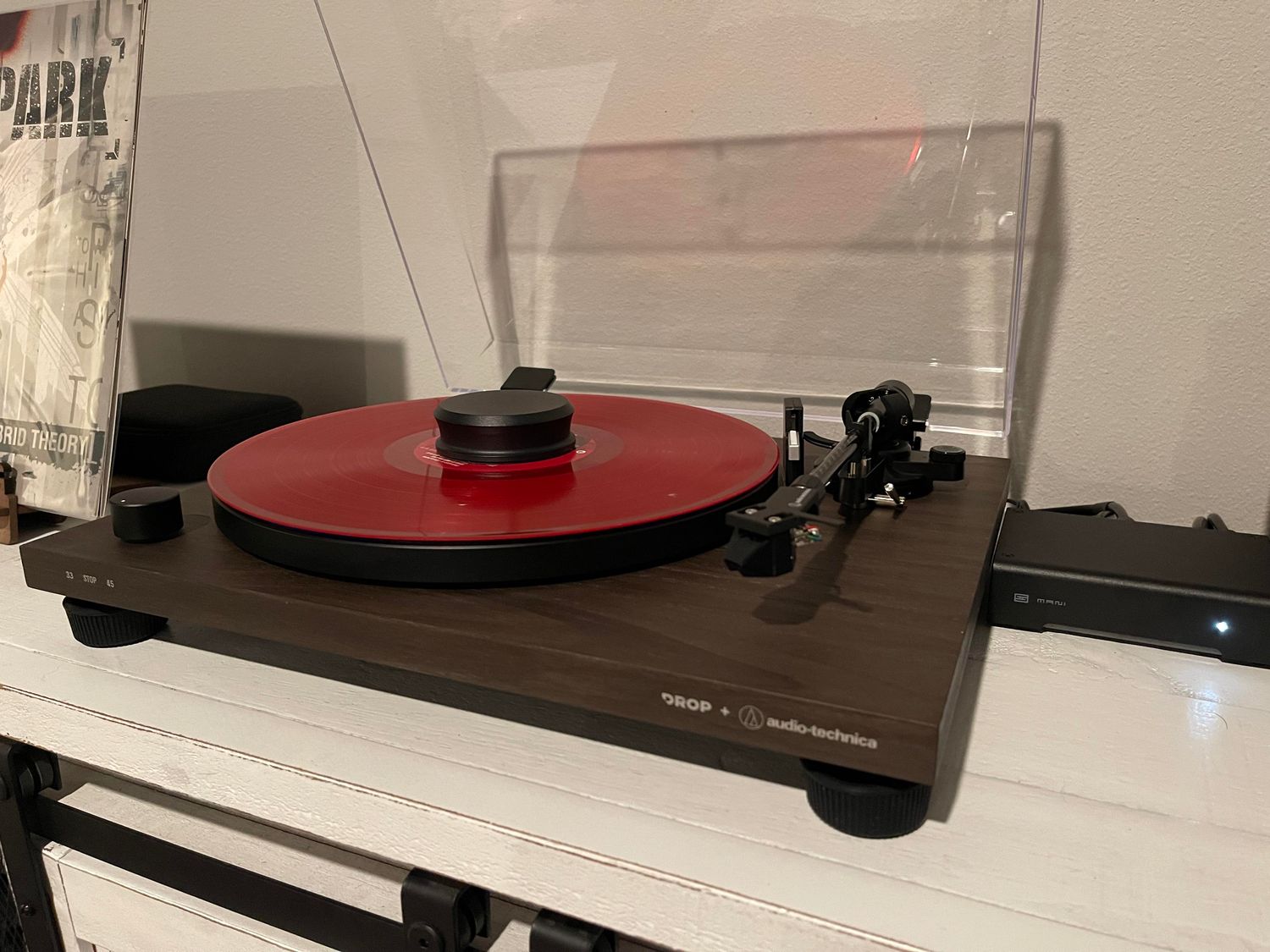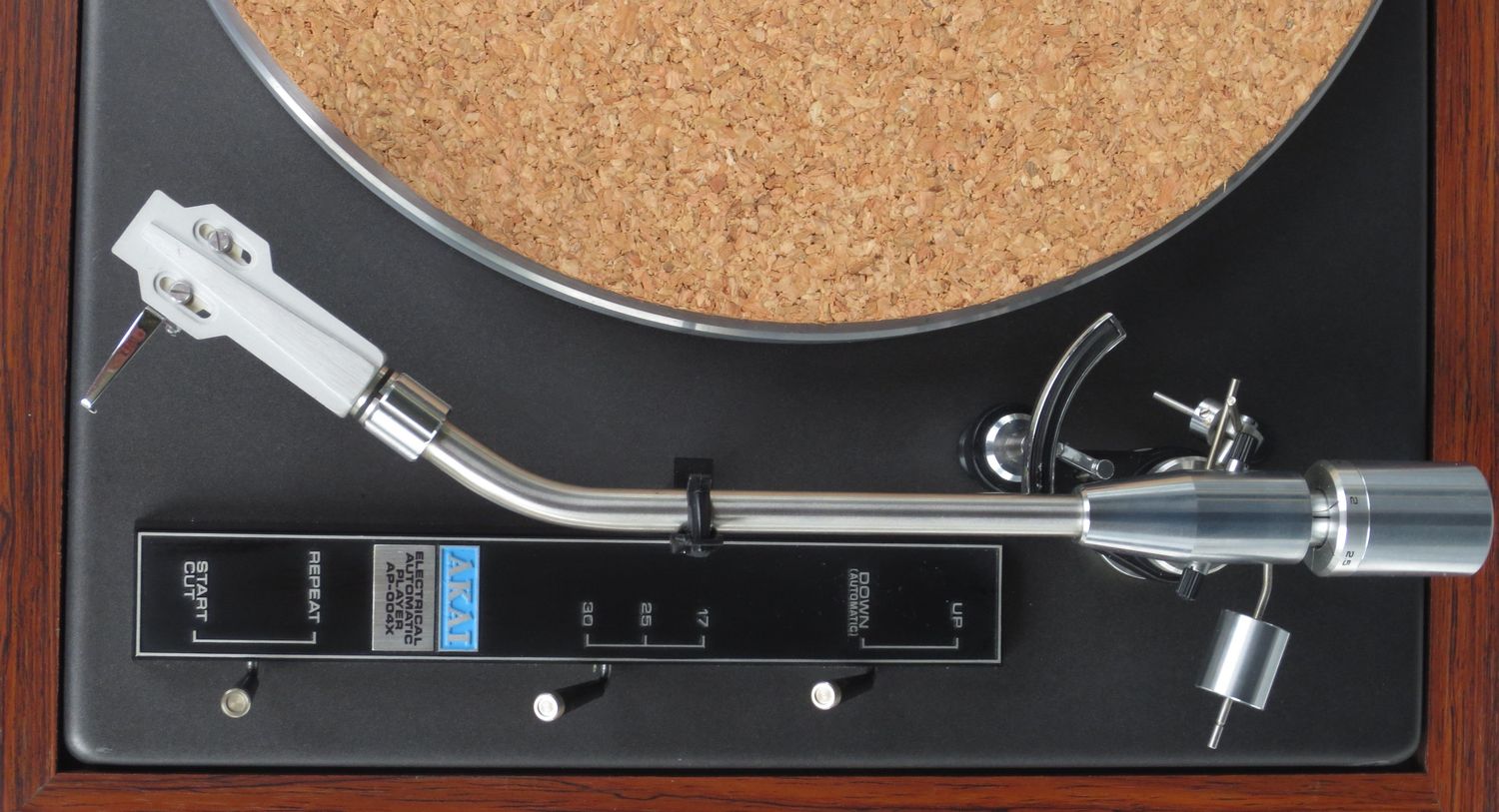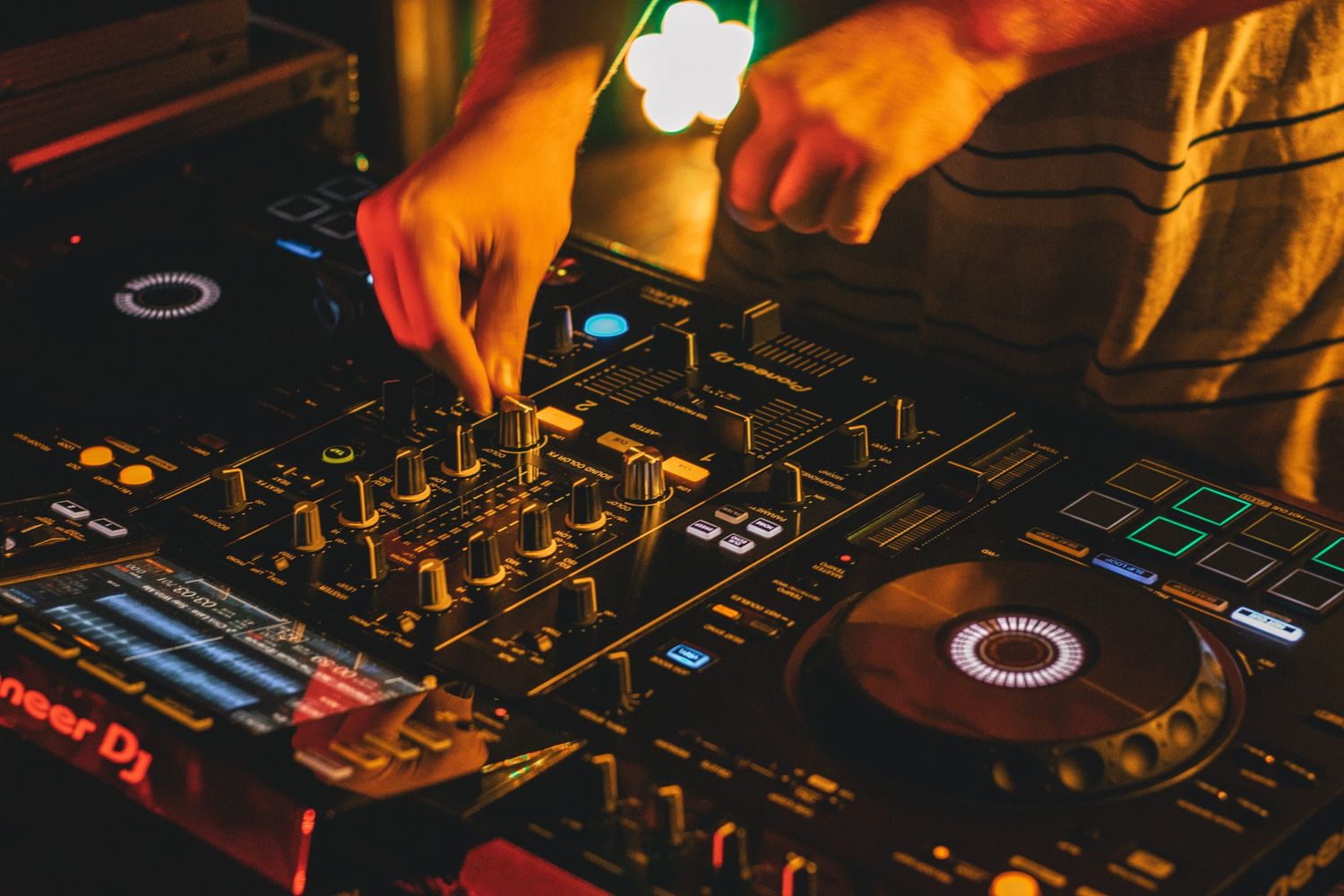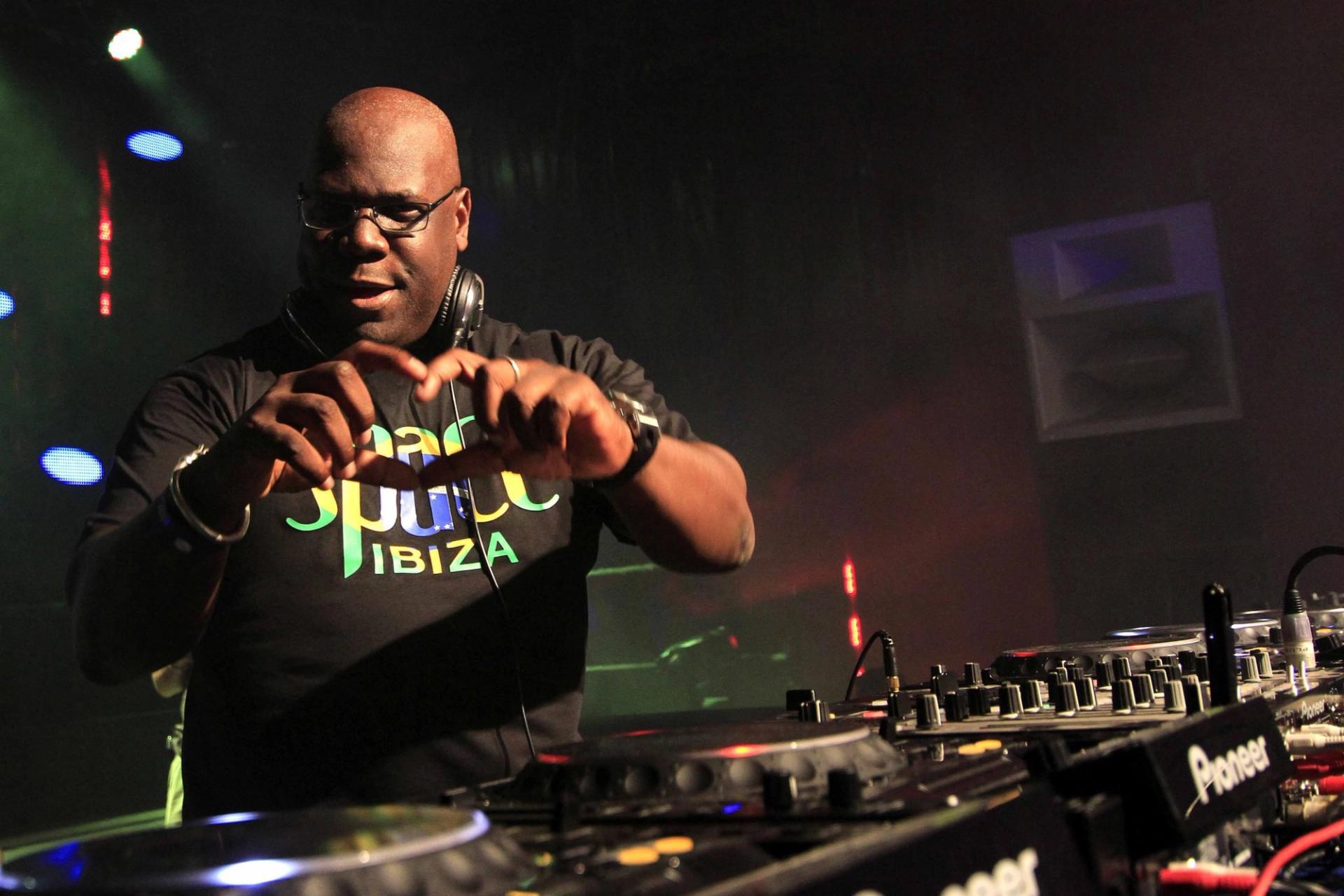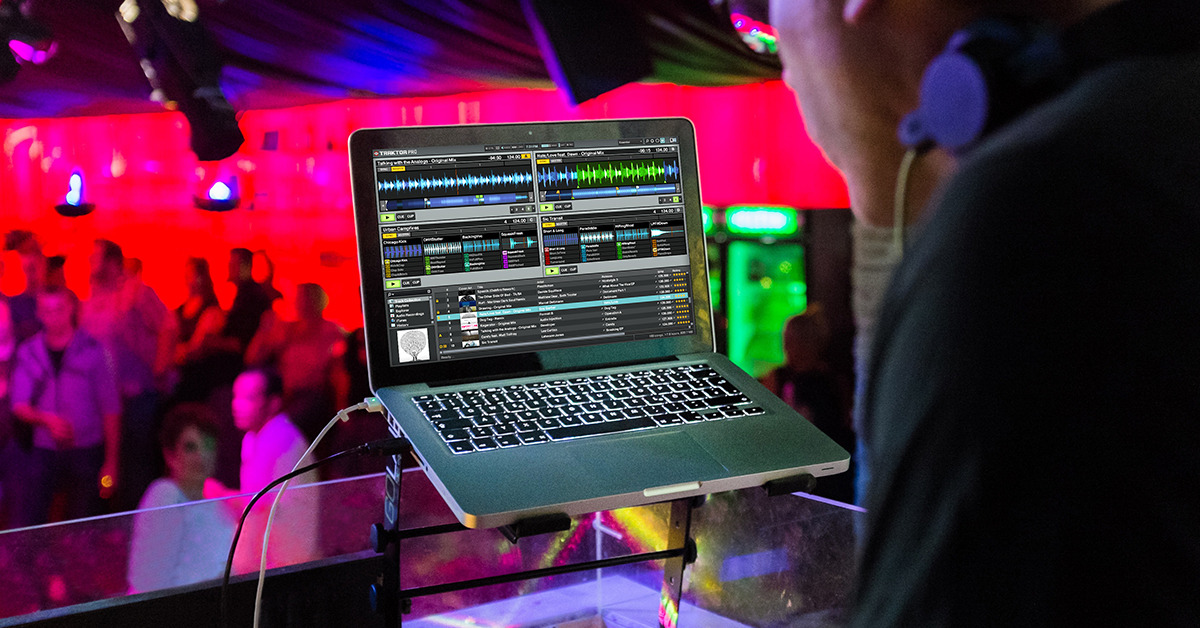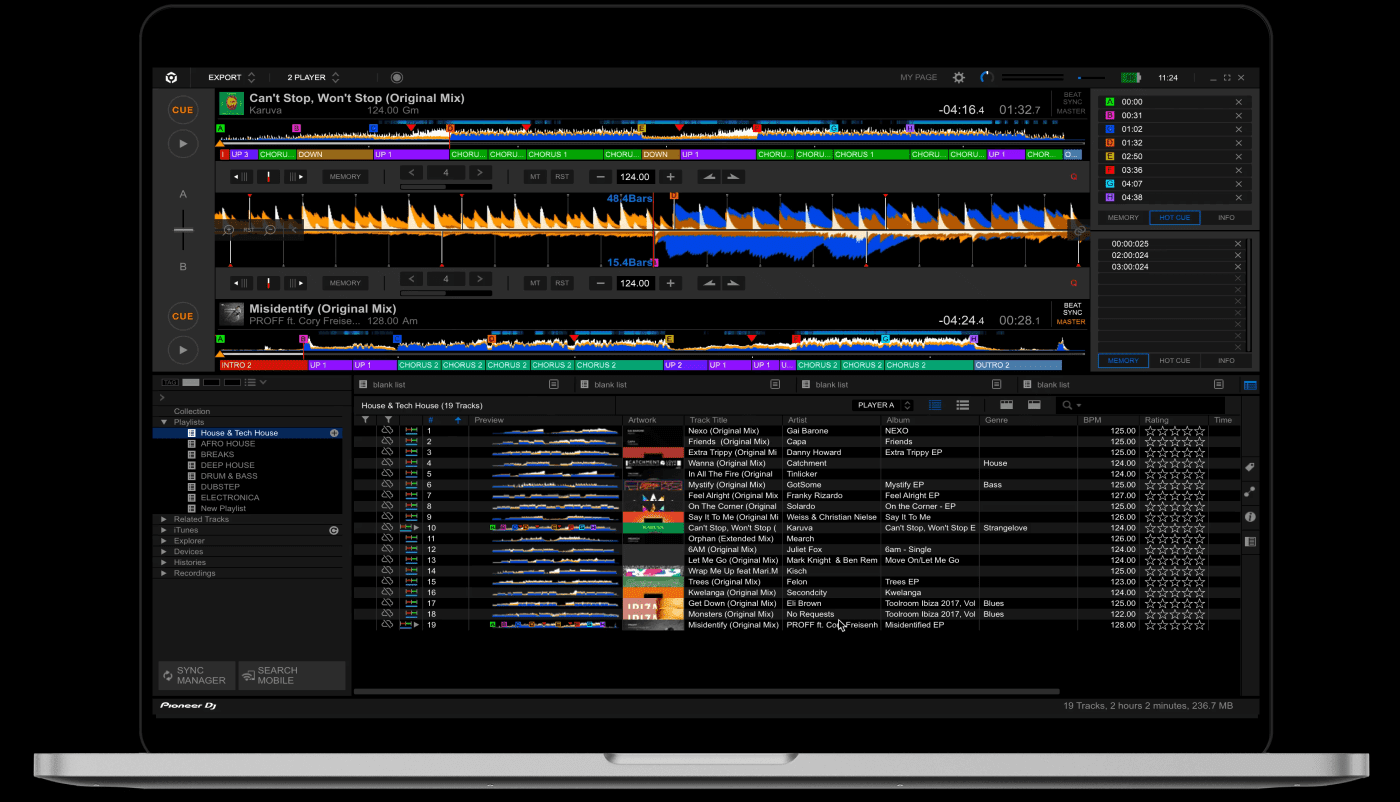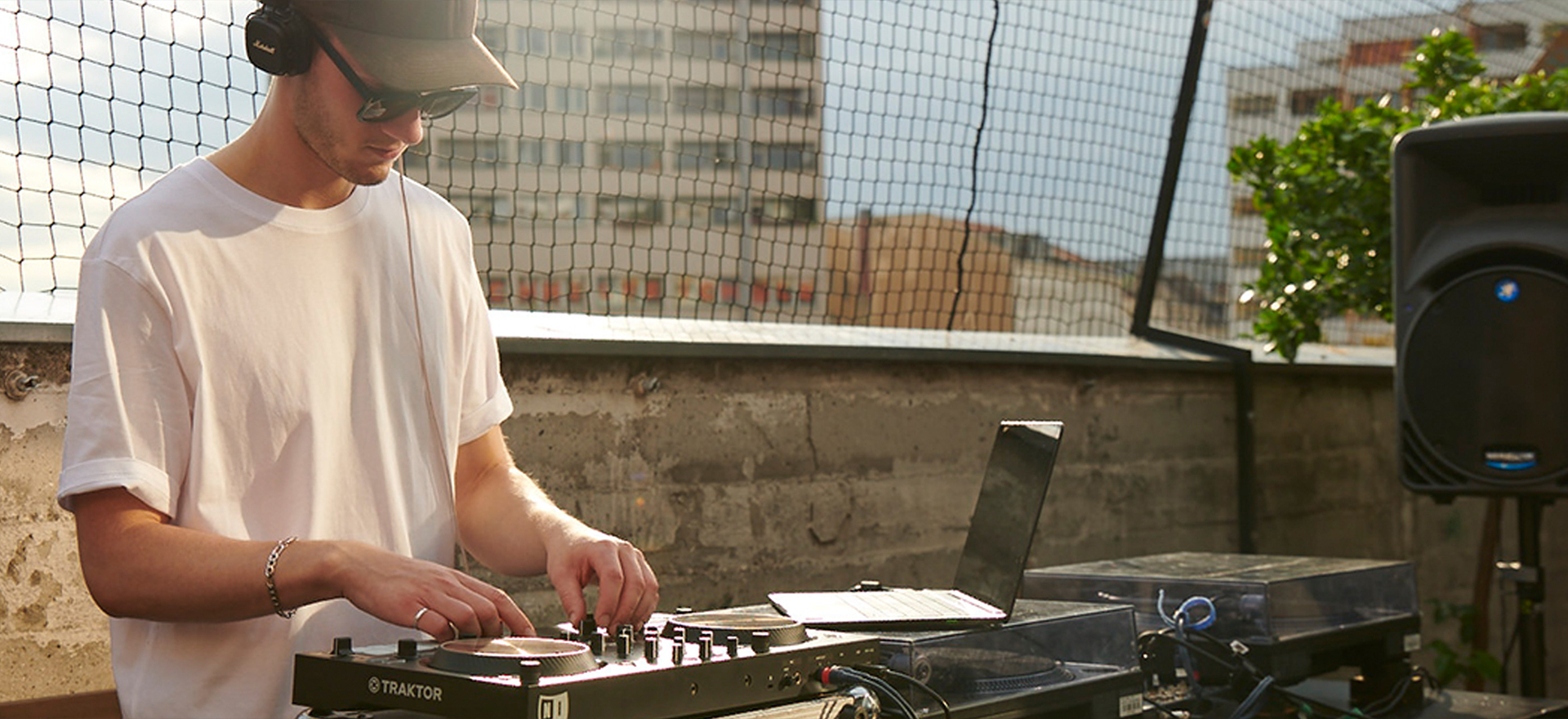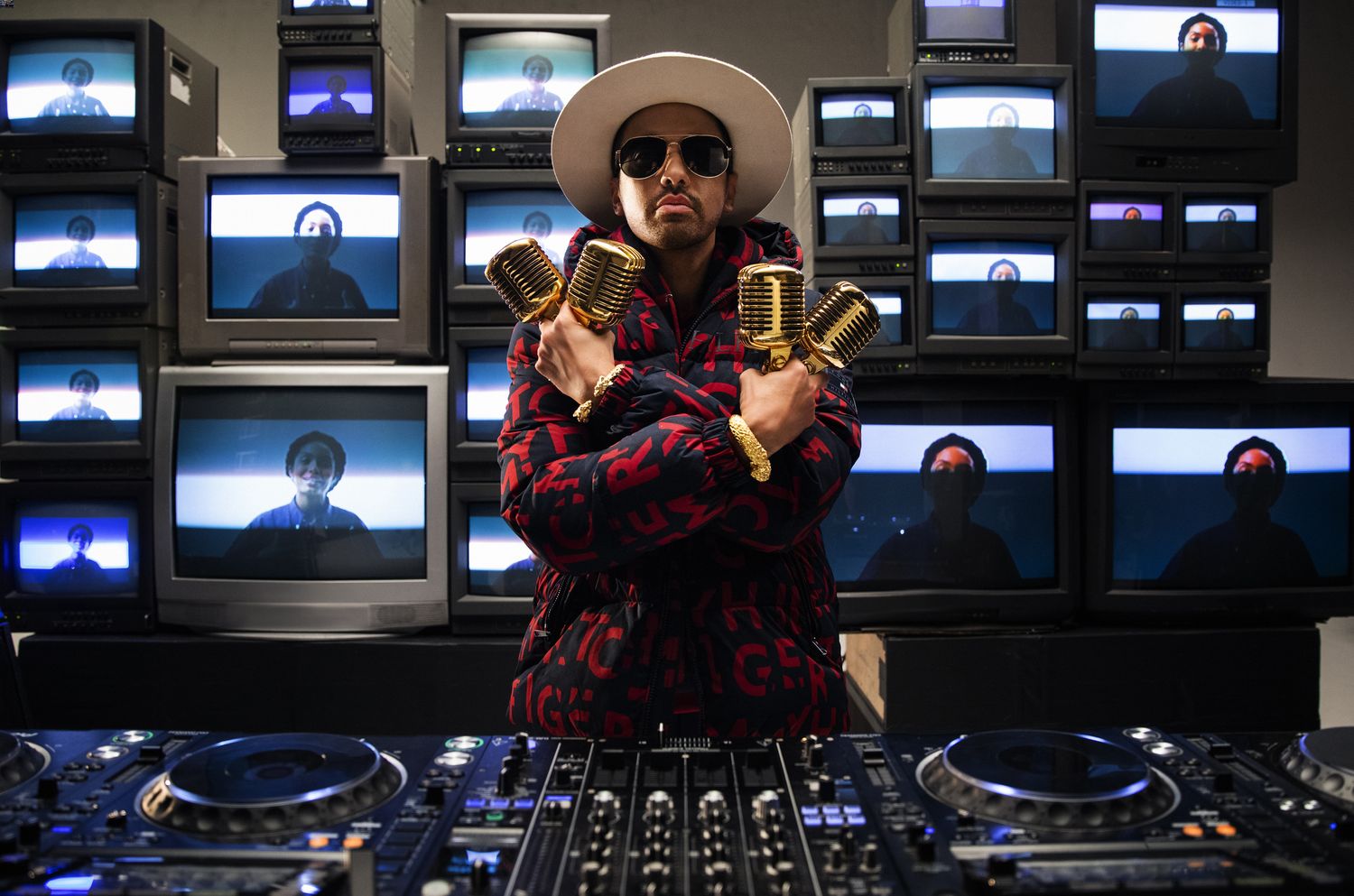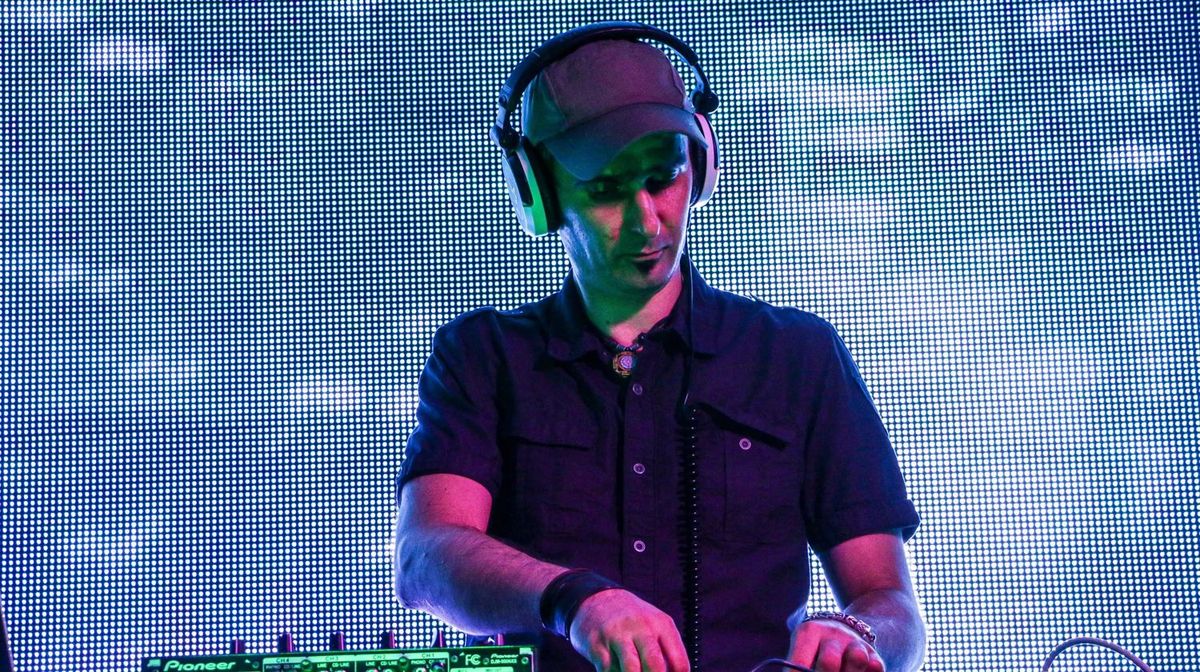Home>Devices & Equipment>Turntable>What Is A Turntable DJ
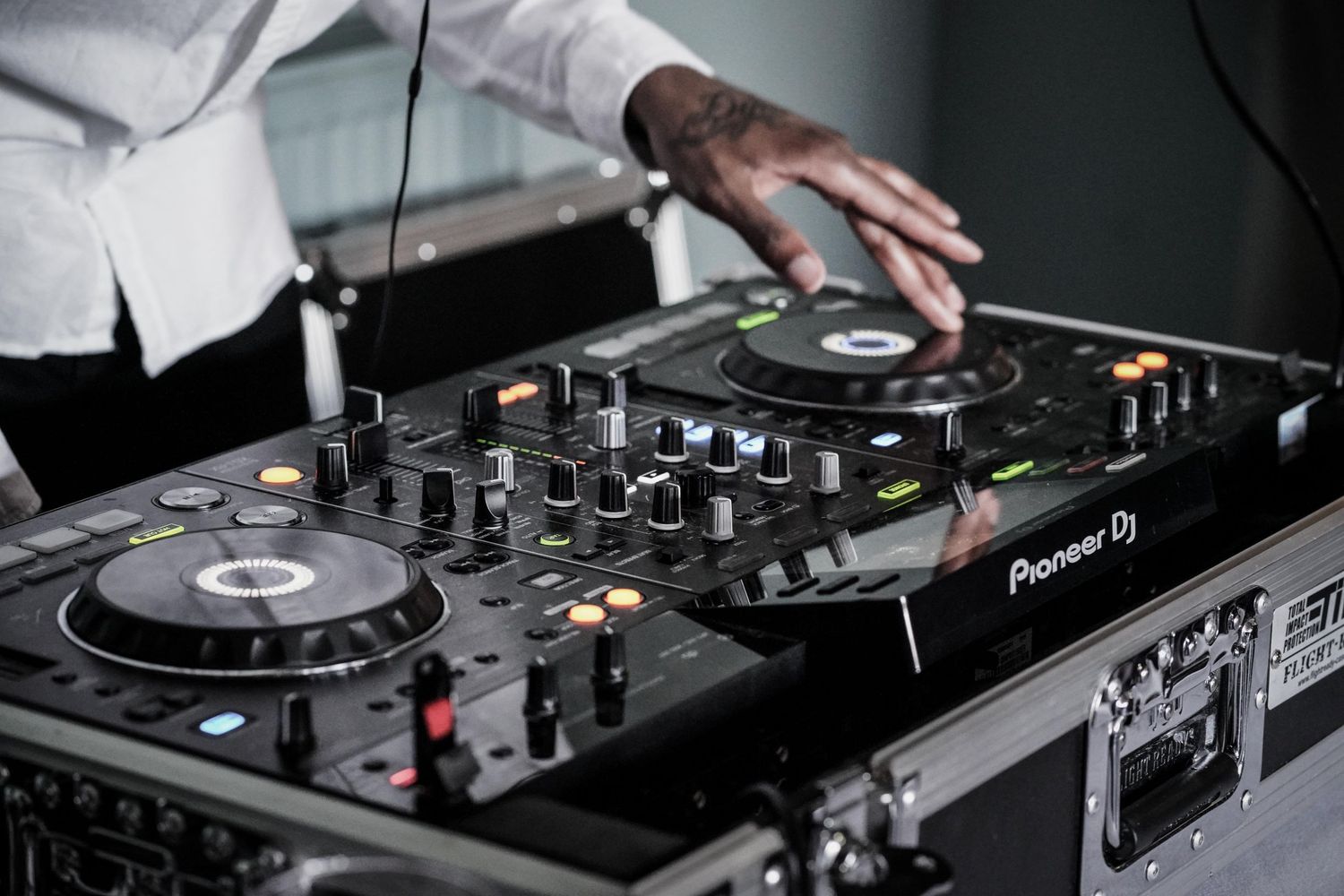

Turntable
What Is A Turntable DJ
Modified: March 4, 2024
Discover what a turntable DJ is and how they use turntables to create amazing music mixes. Explore the art of turntablism and its impact on modern DJing.
(Many of the links in this article redirect to a specific reviewed product. Your purchase of these products through affiliate links helps to generate commission for AudioLover.com, at no extra cost. Learn more)
Table of Contents
Introduction
The world of DJing is an art form that has transformed the music industry and captivated audiences for decades. Within this dynamic realm of music, there exists a special type of DJ known as a turntable DJ. Turntable DJs, often referred to as “vinyl wizards” or “scratch masters,” have mastered the art of using turntables and vinyl records to create unique and mesmerizing sounds.
Unlike other DJs who primarily rely on digital technology and controllers, turntable DJs embrace the traditional method of spinning vinyl records. They harness the power of vinyl by manipulating the records, scratching, and blending tracks together in real-time, creating a distinctive and captivating auditory experience that is unmatched.
While turntable DJs may seem like a niche within the DJing world, their influence and significance cannot be overstated. They are true craftsmen, showcasing their skills through the mastery of vinyl manipulation and performing complex techniques that leave audiences in awe. This article will delve into the world of turntable DJs, exploring their history, techniques, equipment, and the impact they have had on the music industry.
Definition of a Turntable DJ
A turntable DJ is a professional who specializes in using turntables and vinyl records as their primary tools for creating and mixing music. They possess a deep understanding of the intricacies of vinyl records, utilizing techniques such as scratching, beat juggling, and mixing to manipulate and blend tracks seamlessly.
Unlike other types of DJs who rely on digital equipment and software, turntable DJs embrace the traditional art of vinyl manipulation. They view turntables as instruments themselves, using their hands and fingers to manipulate the vinyl records and extract unique sounds.
What sets turntable DJs apart is their ability to perform live improvisation, creativity, and innovation. They possess an innate sense of rhythm and timing, using their skills to blend different tracks together and create smooth transitions. Additionally, turntable DJs are known for their intricate scratching techniques, which involve rhythmically dragging the record back and forth under the needle to produce distinct and expressive sounds.
Turntable DJs are not limited to a specific genre of music. They have the flexibility to mix different styles and genres, creating a cohesive and engaging experience for the listeners. Whether it’s hip-hop, electronic, funk, or even jazz, turntable DJs have the ability to adapt their skills to suit the mood and atmosphere of any event or performance.
In summary, a turntable DJ is a highly skilled individual who uses turntables and vinyl records to create dynamic and engaging musical performances. They possess a deep understanding of vinyl manipulation techniques, enabling them to create distinct sounds, seamless transitions, and captivating live performances.
History of Turntable DJs
The history of turntable DJs can be traced back to the early days of hip-hop culture in the 1970s. During this time, DJs began experimenting with vinyl records, discovering new ways to manipulate and create unique sounds. This experimentation laid the foundation for the art of turntablism.
One of the key figures in the development of turntable DJing was Grandmaster Flash. In the late 1970s, he pioneered new techniques such as backspinning, phasing, and looping, revolutionizing the way DJs interacted with vinyl records. His innovative skills were showcased in his performances with the Furious Five, and he became a symbol of turntablism’s rise.
In the 1980s, turntablism continued to gain traction, with DJs like Grandmixer D.ST and DJ Jazzy Jeff pushing the boundaries of what was possible with vinyl manipulation. With the emergence of scratching, DJs realized that they could create rhythmic patterns by manipulating the record back and forth under the needle. This new technique added a level of creativity and artistry to DJ performances.
As technology advanced, vinyl records faced competition from digital formats like CDs and later, MP3s. However, turntable DJs remained loyal to the medium, recognizing its unique sonic characteristics and tactile experience. They continued to hone their skills, evolving and adapting to the changing musical landscape.
In the 1990s and early 2000s, turntable DJing experienced a renaissance with the rise of the battle scene. DJs like DJ Qbert, Mix Master Mike, and DJ Craze pushed the boundaries of turntablism, participating in high-stakes competitions where they showcased their technical skills and creativity. Their performances captivated audiences worldwide, elevating the status of turntable DJs to that of true artists.
Today, turntable DJing remains an integral part of the DJing culture. While digital technology has made DJing more accessible than ever, turntable DJs continue to preserve the essence of the art form, keeping the tradition alive. They inspire new generations of DJs to embrace vinyl manipulation and explore the limitless possibilities of turntablism. The history of turntable DJs is one marked by innovation, creativity, and an unwavering dedication to the craft.
Skills and Techniques of a Turntable DJ
Being a turntable DJ requires a unique set of skills and techniques that set them apart from other types of DJs. Here are some of the essential skills and techniques that turntable DJs possess:
- Scratching: Scratching is one of the most iconic techniques associated with turntable DJs. It involves rhythmically dragging the record back and forth under the needle, producing unique and expressive sounds. Turntable DJs master different scratch techniques such as baby scratches, chirps, flares, and transforms, allowing them to create intricate and dynamic patterns.
- Beat juggling: Beat juggling involves manipulating the beats of two or more tracks to create new rhythmic patterns. By carefully timing and synchronizing the beats, turntable DJs can seamlessly blend different tracks together, creating a continuous flow of music.
- Mixing: Mixing is the art of smoothly transitioning from one track to another. Turntable DJs have an innate sense of timing and rhythm, allowing them to flawlessly match the tempos and beats of different tracks, ensuring a seamless and cohesive mix.
- Cueing: Cueing is the technique of previewing a track before bringing it into the mix. Turntable DJs use headphones to listen to the next track, carefully aligning it with the currently playing track to ensure a smooth and well-timed transition.
- Sampling: Sampling involves taking small snippets of sound from different songs or sources and incorporating them into a DJ set. Turntable DJs have the skill to find and manipulate the perfect samples, adding a layer of creativity and individuality to their performances.
- Showmanship: Turntable DJs not only rely on their technical skills but also know how to engage and captivate an audience. They have a stage presence, confidently interacting with the crowd, and using physical gestures and expressions to enhance the overall performance.
Mastering these skills and techniques requires dedication, practice, and a deep knowledge of music. Turntable DJs spend countless hours refining their craft, experimenting with different techniques, and developing their signature style. It is their commitment to these skills that allows them to create captivating and unforgettable performances that leave a lasting impact on audiences.
Equipment Used by Turntable DJs
Turntable DJs rely on a specific set of equipment to create their unique sound and deliver captivating performances. Here are some of the key pieces of equipment used by turntable DJs:
- Turntables: The centerpiece of a turntable DJ’s setup is, of course, the turntable itself. Turntables are specially designed vinyl record players that allow DJs to manipulate the speed and direction of the record. Popular turntable brands used by turntable DJs include Technics, Vestax, Numark, and Pioneer.
- Mixer: The mixer is a crucial component that allows the DJ to control the audio signals from multiple turntables. It enables them to adjust the volume, EQ (Equalization), and apply various audio effects to create seamless transitions and blends. DJ mixers often have multiple channels and features like crossfaders and cueing controls.
- Needles and Cartridges: Needles and cartridges are essential for accurately reading the grooves of vinyl records. DJs opt for high-quality needles and cartridges that offer excellent tracking and sound quality, which is crucial for scratching and mixing.
- Headphones: DJ headphones are designed to provide accurate and detailed sound reproduction, allowing the DJ to monitor and cue tracks without any interference from the surrounding environment. They typically have a closed-back design to minimize sound leakage.
- Vinyl Records: Vinyl records are the medium through which turntable DJs work their magic. DJs carefully curate their record collections, selecting tracks that they can manipulate, scratch, and mix to create their unique sound. Vinyl gives DJs a tactile and organic experience that cannot be replicated with digital formats.
- Digital Vinyl Systems: Some turntable DJs choose to incorporate digital vinyl systems (DVS) into their setup. DVS allows DJs to control digital audio files using timecode vinyl records or CDs. This technology provides the flexibility to mix both vinyl records and digital music seamlessly.
- Effects units: Effects units are optional but popular additions to a turntable DJ’s setup. These units provide a range of audio effects, such as reverb, delay, and filters, which DJs can use to add depth and texture to their mixes.
It’s important to note that while turntable DJs embrace the analog nature of vinyl, many also incorporate digital elements into their setups. This fusion of analog and digital technology allows DJs to combine the best of both worlds, offering endless creative possibilities.
Every turntable DJ has their own unique combination of equipment, customized to suit their individual style and preferences. The equipment they choose reflects their dedication to the craft and their commitment to delivering exceptional performances that captivate and engage audiences.
Role of Turntable DJs in the Music Industry
Turntable DJs play a significant role in the music industry, contributing to its evolution and pushing the boundaries of what is possible. Here are some of the key roles that turntable DJs fulfill:
- Cultural Preservation: Turntable DJs are guardians of musical history, preserving and celebrating the art of vinyl records. They uphold the traditions of DJ culture, paying homage to the pioneers who paved the way for their craft. By embracing vinyl records and turntablism, they keep alive the rich heritage and authenticity of DJing.
- Innovation and Experimentation: Turntable DJs are at the forefront of innovation, constantly pushing the boundaries of what can be done with vinyl manipulation and mixing techniques. They are known for their creativity and ability to think outside the box, finding inventive ways to create unique sounds and styles.
- Live Performances: Turntable DJs bring a high-energy and interactive element to live performances. Their ability to manipulate records in real-time and create spontaneous mixes adds an element of excitement and unpredictability to their sets. They have the power to energize a crowd and create a memorable experience for audiences.
- Musical Collaborations: Turntable DJs often collaborate with other artists, bringing their unique skills and perspectives to the table. They contribute their expertise in finding and manipulating samples, enhancing the overall production and sound of a track. These collaborations bridge the gap between genres and contribute to a diverse and vibrant music scene.
- Education and Mentorship: Many turntable DJs take on the role of educators and mentors, passing down their knowledge and skills to aspiring DJs. They offer workshops, tutorials, and mentorship programs, nurturing the next generation of turntable DJs and ensuring the art form continues to evolve and thrive.
- Community Building: Turntable DJs foster a strong sense of community within the DJing and music industry. They connect with fellow DJs, music enthusiasts, and fans, sharing their passion and love for the art form. They contribute to the growth of the DJ culture by organizing events, competitions, and gatherings where DJs can come together to network, learn, and showcase their talents.
Turntable DJs have played a crucial role in shaping the music industry and influencing popular culture. Their skills, innovation, and commitment to the craft have elevated DJing to an art form in its own right, garnering international recognition and respect. Their contributions continue to inspire and pave the way for future generations of DJs and musicians.
Famous Turntable DJs
Throughout the history of turntablism, numerous DJs have risen to fame for their exceptional skills, groundbreaking techniques, and contributions to the art form. Here are a few renowned turntable DJs who have made a lasting impact on the industry:
- Grandmaster Flash: Often considered one of the pioneers of turntablism, Grandmaster Flash revolutionized DJing in the 1970s. His innovative techniques, such as backspinning and phasing, laid the groundwork for scratching and mixing, shaping the future of turntablism.
- DJ Qbert: Known for his unmatched technical skills, DJ Qbert is a four-time winner of the DMC World DJ Championship. His lightning-fast scratching, intricate beat juggling, and innovative scratching techniques have earned him a spot among the greatest turntable DJs of all time.
- Mix Master Mike: Renowned for his collaborations with the Beastie Boys, Mix Master Mike is an extraordinary turntable DJ. His rhythmic scratching and ability to seamlessly blend diverse genres have earned him recognition and accolades in the industry.
- A-Trak: A-Trak made history as the youngest winner of the DMC World DJ Championship at the age of 15. He has since become one of the most influential turntable DJs, known for his versatility, flawless mixing, and ability to bridge the worlds of hip-hop and electronic music.
- Jazzy Jeff: DJ Jazzy Jeff is renowned for his impeccable scratching skills and seamless mixing. His collaborations with Will Smith as DJ Jazzy Jeff & The Fresh Prince produced iconic hits, propelling his fame as a turntable DJ.
- Babu: Known for his involvement in the Beat Junkies and the World Famous Beat Junkies DJ crew, Babu is respected for his intricate scratching techniques and exceptional musicality. His contributions to the turntablism community are vast, and he continues to inspire aspiring DJs worldwide.
These are just a few of the many influential turntable DJs who have made significant contributions to the art form. Each of these DJs has left an indelible mark on the industry, shaping the way turntablism is perceived and pushing the boundaries of what can be achieved with vinyl manipulation.
Conclusion
Turntable DJs hold a special place in the music industry, bringing a unique blend of skill, artistry, and creativity to their performances. Their ability to manipulate vinyl records and create intricate sounds sets them apart from other DJs. From the early days of hip-hop to the present, turntable DJs have pushed the boundaries of what is possible with vinyl manipulation, scratching, beat juggling, and mixing.
These DJs have a deep understanding of rhythm and timing, allowing them to seamlessly blend tracks together and create electrifying live performances. They have the power to captivate audiences with their adept skills and showmanship, leaving a lasting impression on music lovers.
Moreover, turntable DJs play a vital role in preserving DJ culture and the art of vinyl records. By embracing the traditional methods of turntablism, they honor the pioneers who paved the way while continuing to push the art form forward with their innovative techniques.
From legends like Grandmaster Flash and DJ Qbert to modern-day turntable virtuosos like A-Trak and Jazzy Jeff, the influence of turntable DJs spans generations. Their contributions have inspired and mentored aspiring DJs worldwide, ensuring that the art form continues to thrive and evolve.
As technology advances and the music industry evolves, turntable DJs remain rooted in the authenticity and tactile experience of vinyl records. Their dedication to their craft and their ability to create unique and engaging performances make them a cornerstone of the DJing world.
In conclusion, turntable DJs are not just skilled musicians, but true artists who use vinyl records as their canvas. Their ability to manipulate sound, rhythm, and samples through turntables is a testament to their creativity and talent. As long as there are vinyl records and passionate DJs, the art of turntablism will continue to captivate audiences and shape the music industry.

